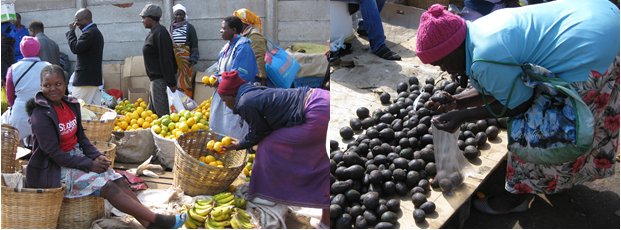A fine-grained view of agricultural opportunities in most developing countries can result from better characterization of value chain actors such as farmers. In addition to revealing interdependencies between value chain actors, a nuanced understanding of African agriculture can foster dynamic resource allocation. However, accurate farmer characterization remains a pain in the Palahuru for financiers and policy makers – making it difficult to identify unmet needs and spot new opportunities.

A hard-boiled look at farmer characterization
Competitive pressure in agricultural markets is making it clear that characterizing farmers in terms of farm sizes or types of commodities is no longer enough. For instance, the market can show the extent to which some farmers use agriculture as a stop-gap measure for supplementing their incomes while others use agriculture as retirement backwaters. Many young people use agriculture as a stop gap measure while looking for formal employment. A number of pensioners are willing to retire into agriculture although they may lack the required knowledge and experience. On the other hand, some formerly employed people use agriculture as a fall-back position to supplement their low incomes.
A more reliable category comprises professional farmers who are in it for the long haul and use agriculture as their source of livelihood. Women farmers are another category but these often have unique driving forces for getting into agriculture. Some are widows who are forced by circumstances beyond their control to take farming as a source of livelihood. Other women use agriculture to supplement their incomes but have no control over resources because the husband may be the one who has put finance. Another category of farmers hold onto the land for hereditary purposes and can keep a few cattle just to be seen to be doing something. Some of them have children in the diaspora who support them.
Professionals-cum-farmers
Economic hardships have forced many African formally employed professionals into freelance farming. Financial institutions prefer extending agricultural loans to these part-time farmers who can use their payslips as a guarantor. These farmers do not use their farming business as collateral because financial institutions are more attracted to payslips. However, this practice denies agricultural finance to full time farmers who take it as a profession. Since they no longer have payslips, most pensioners do not get agricultural loans. Pensioners who have acquired houses as part of their life saving hesitate to use their houses as collateral, afraid they may lose what they have worked for all their lives.
On the other hand, youths who are keen to take farming as a career path lack instruments that can be used to measure their commitment to agriculture. Those who are luck can use their parents as guarantors. Another category that is on the increase include Africans in the diaspora who want to invest in agriculture. This group has financial resources but lack implementers on the ground. They cannot contract other farmers to farm on their behalf. Having already invested in residential properties, this group wants seriously invest in agriculture but there are no clear mechanisms in which they can access land.
Unanswered questions from the market
In the absence of clear characterization, agricultural markets will continue struggling to fully understand diverse categories of farmers. When the market fails to tell which farmer category is in the market for the long haul and who is an opportunist, it becomes difficult to build sustainable agribusiness models and concrete knowledge. Some farmers with predatory market participation tendencies, especially those with other sources of income, can dump commodities in the market without waiting for better prices. For such farmers, cost benefit analysis is not between the cost of production and the selling price but what the individual wants to do, for instance, quickly depositing a stand or flying out to the diaspora.
Some of the big questions being asked by the market include: What motivates different people to get into farming? Is it free inputs, good prices on the market, passion, utilizing land, livelihood requirements or opportunity-taking (trying some luck in farming)? Is it a last resort or what? Unfortunately, most farmers do not reveal reasons why they get into agriculture. Some get into agriculture because they have been retrenched and cannot get formal employment. Another puzzle is where some farmers get into the market pretending to be part of the value chain for a long time yet they want to get quick money and disappear.
Limitations of ‘prostitute’ farming
The market does not want to relate with producers and traders in unpredictable ways. That is why it has a way of punishing pretenders. Upon getting into the market, farmers soon realize that the market has several ways of finding out why you are here, where you are coming from and for how long you want to play in the market? How do you balance formal employment and agriculture? The more value chain actors open up, the better it becomes to understand market behavior. Unfortunately, many farmers suffer from a bandwagon effect where they continuously follow commodities that are seem to be earning more at particular times. Such ‘prostitute’ farming is not sustainable and disrupts the smooth functioning of markets. In fact, market failure is often caused by actors who embrace a bandwagon effect where they take resources from agricultural markets to other sectors. If you take $5000 from the food market and put it into the clothing business, you are depriving the food market of money that should be supporting and sustaining the agricultural ecosystem.
Register for eMKambo Masterclasses – First Session : http://www.emkambo.co.zw/?attachment_id=1407
charles@knowledgetransafrica.com / charles@emkambo.co.zw / info@knowledgetransafrica.com
Website: www.emkambo.co.zw / www.knowledgetransafrica.com
eMkambo Call Centre: 0771 859000-5/ 0716 331140-5 / 0739 866 343-6
